5 ways AI is going to change the way you use Google Search
Google Search results will soon display AI generated content
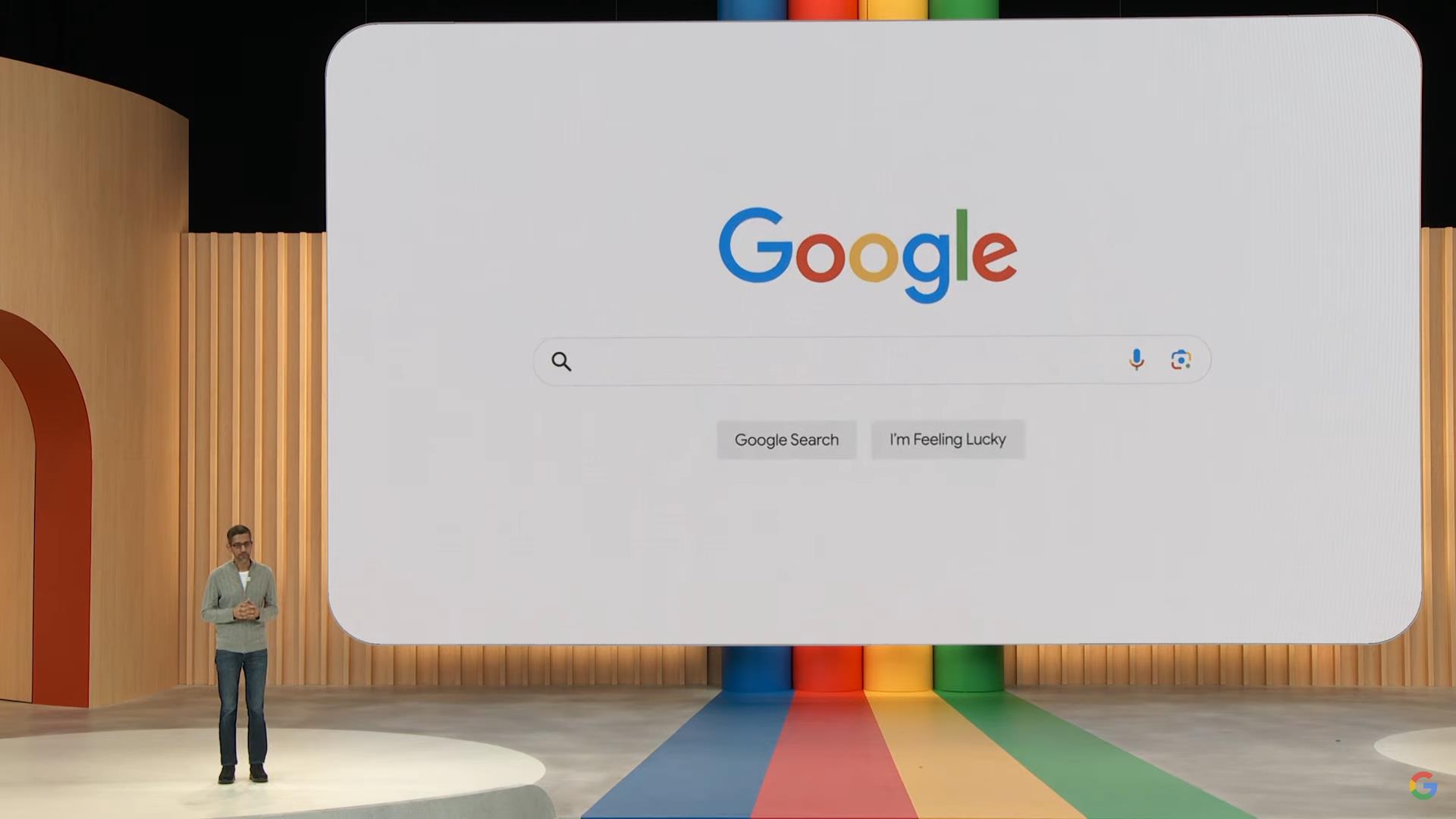
Sign up for breaking news, reviews, opinion, top tech deals, and more.
You are now subscribed
Your newsletter sign-up was successful
Google just held its I/O 2023 event, where a large amount of time was dedicated to how AI will boost the company's many platforms. Gmail, for example, is going to be able to write more detailed emails that may help you get refunds on canceled flights. Google Bard, the company’s own generative AI, will integrate itself into multiple first-party apps like those on Workspace.
However, one of the more interesting parts of the presentation has to be SGE, or Search Generative Experience. This is the long-awaited generative AI update that will be coming to Google Search, giving Microsoft's Bing a new challenger. Despite the boost to Bing, Microsoft still hasn’t been able to close the gap over its rival, and in the future it looks like that gap will even grow bigger.
Below is a list detailing all of the new ways SGE will change Google Search later this year.
1. In-depth Search results
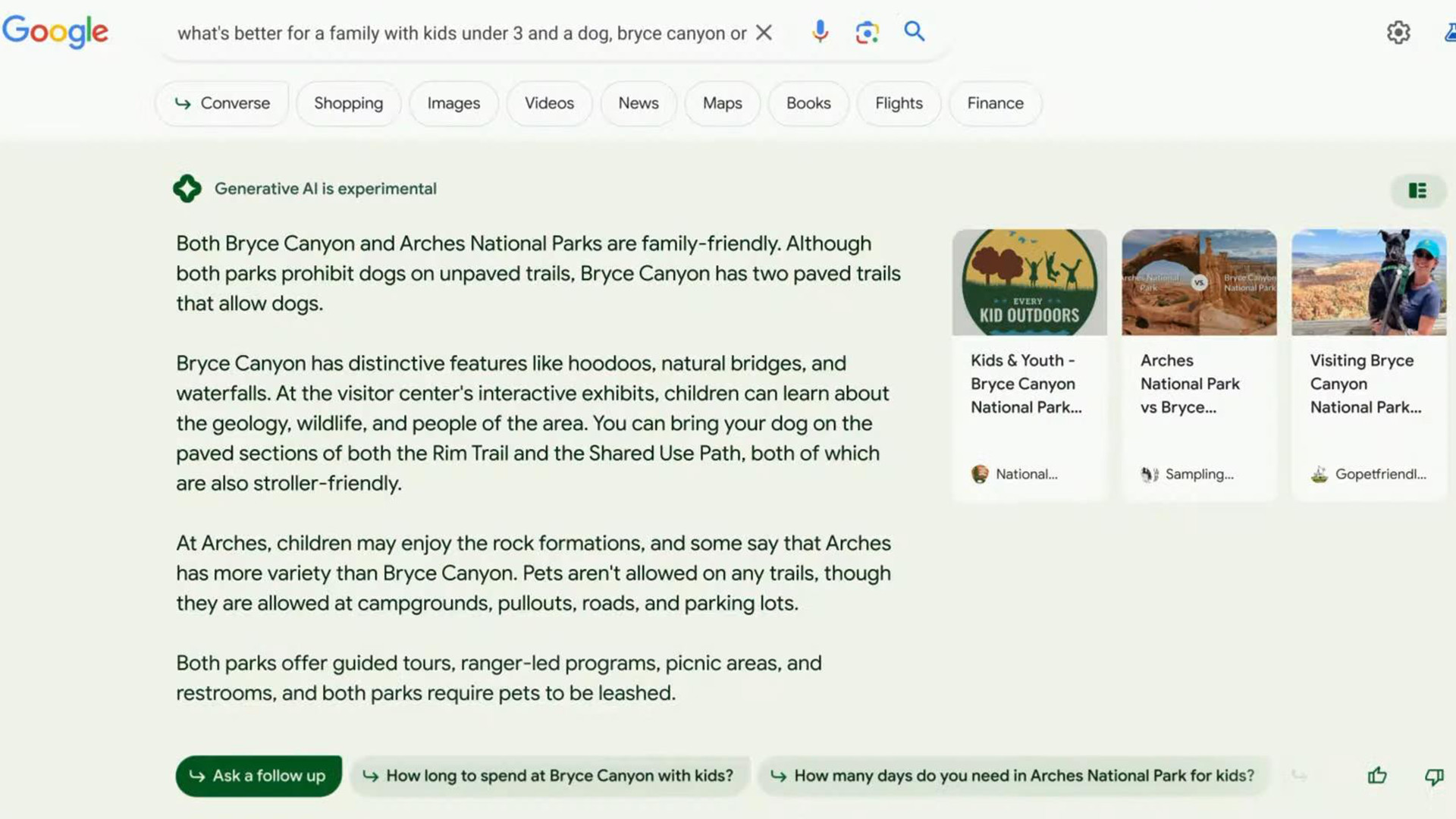
Google Search will be able to answer inquisitive questions using the generative AI to write detailed answers. As pointed out in Google's presentation, you can’t really ask the current version of Search long-winded questions. You’ll instead need to break things down and put the pieces together yourself.
Additionally, search results will have relevant links next to the detailed answers so you can learn more about a topic. Google will also back up the text it creates with the exact sources it pulled from, which will appear in a separate menu.
2. In-depth product results
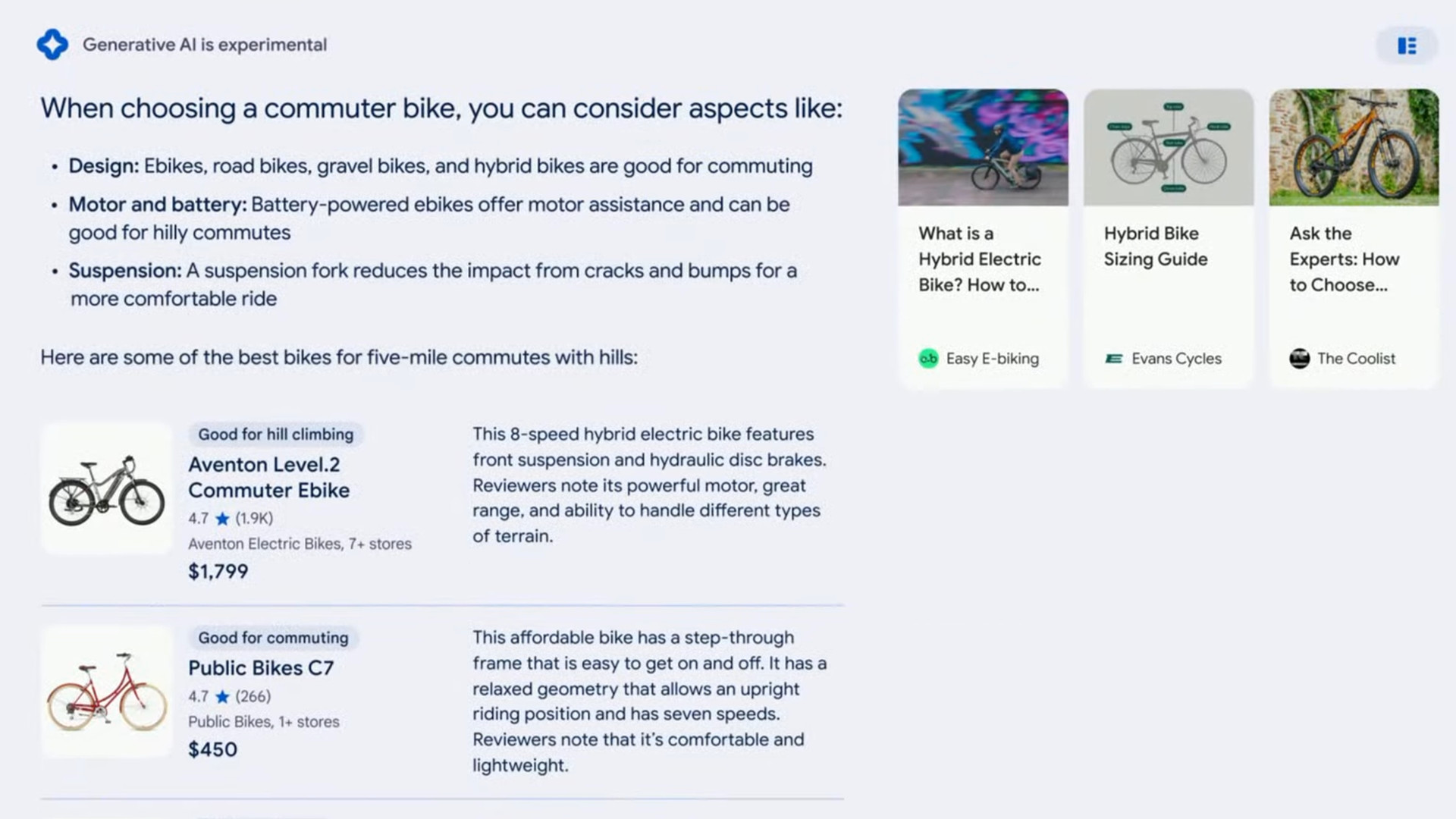
Say you’re looking for a new bicycle for your commute but you don’t know what to buy. You can ask the AI-powered Search for recommendations and it’ll give you a detailed list of features to look out for. For example, the results may recommend getting an ebike since the motor can help you climb hills or a bike with a good suspension to handle bumps in the road.
Below the text, Google will provide links to products that best fit its criteria. Each recommendation will have its own brief descriptor, review links, and price point listed. Selecting a product brings up a list of retailers, including those that are currently having sales.
Sign up for breaking news, reviews, opinion, top tech deals, and more.
3. New Conversational Mode
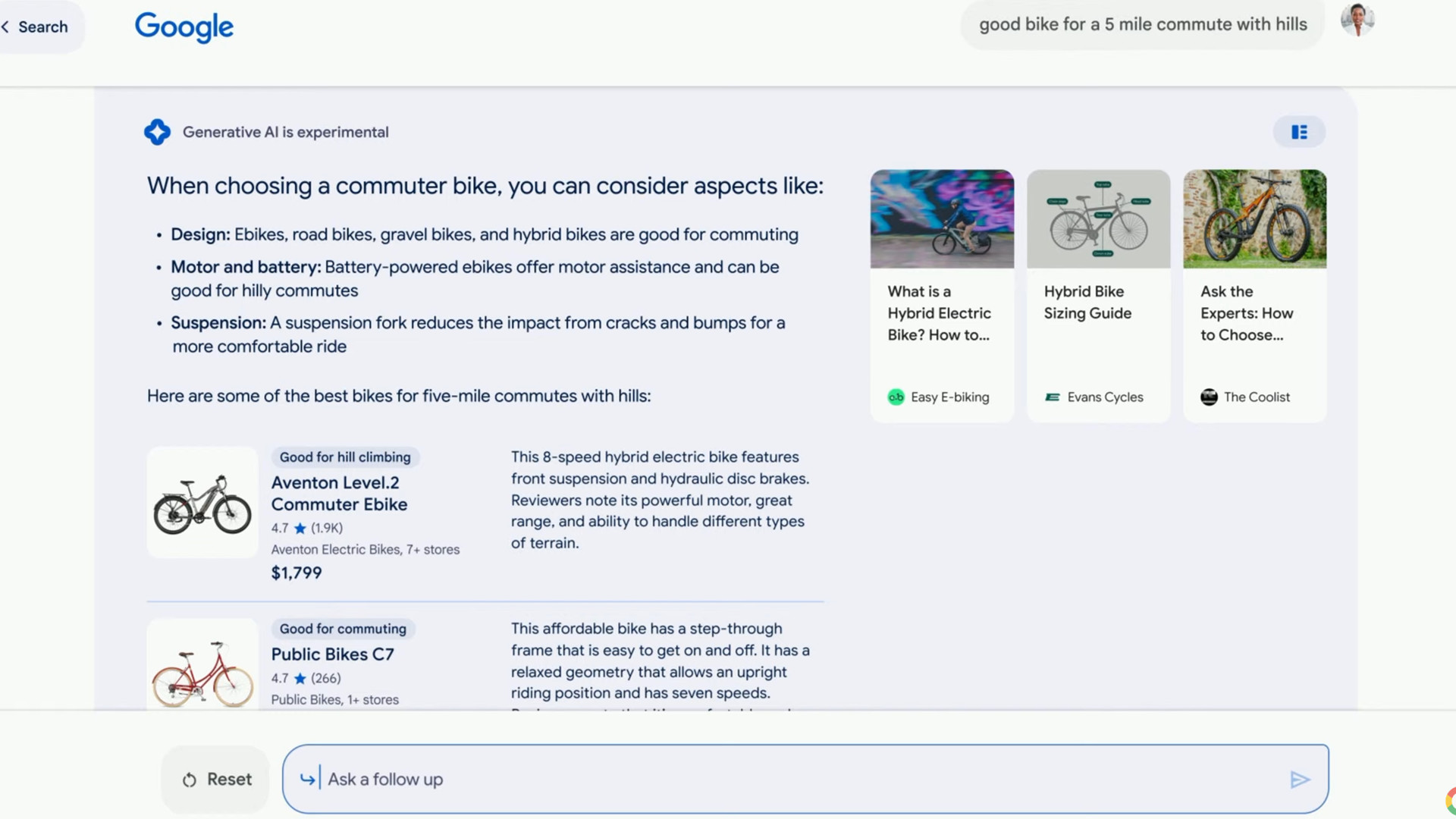
At the bottom of each generated text will be a series of follow-up questions you can select if you want to know more about a certain topic. Doing so takes you to Google’s new Conversational Mode where you ask the AI to go into further detail. Context is taken into consideration so you won’t have to ask the AI the same question again. You can start right where you left off.
And like with the in-depth product search, the generative AI will provide product links complete with reviews alongside official online retailers. Presumably, Conversational Mode will be available on all search results since other parts of the demo showed follow-up questions at the bottom of the screen, although we didn't see them in action.
4. Content generation
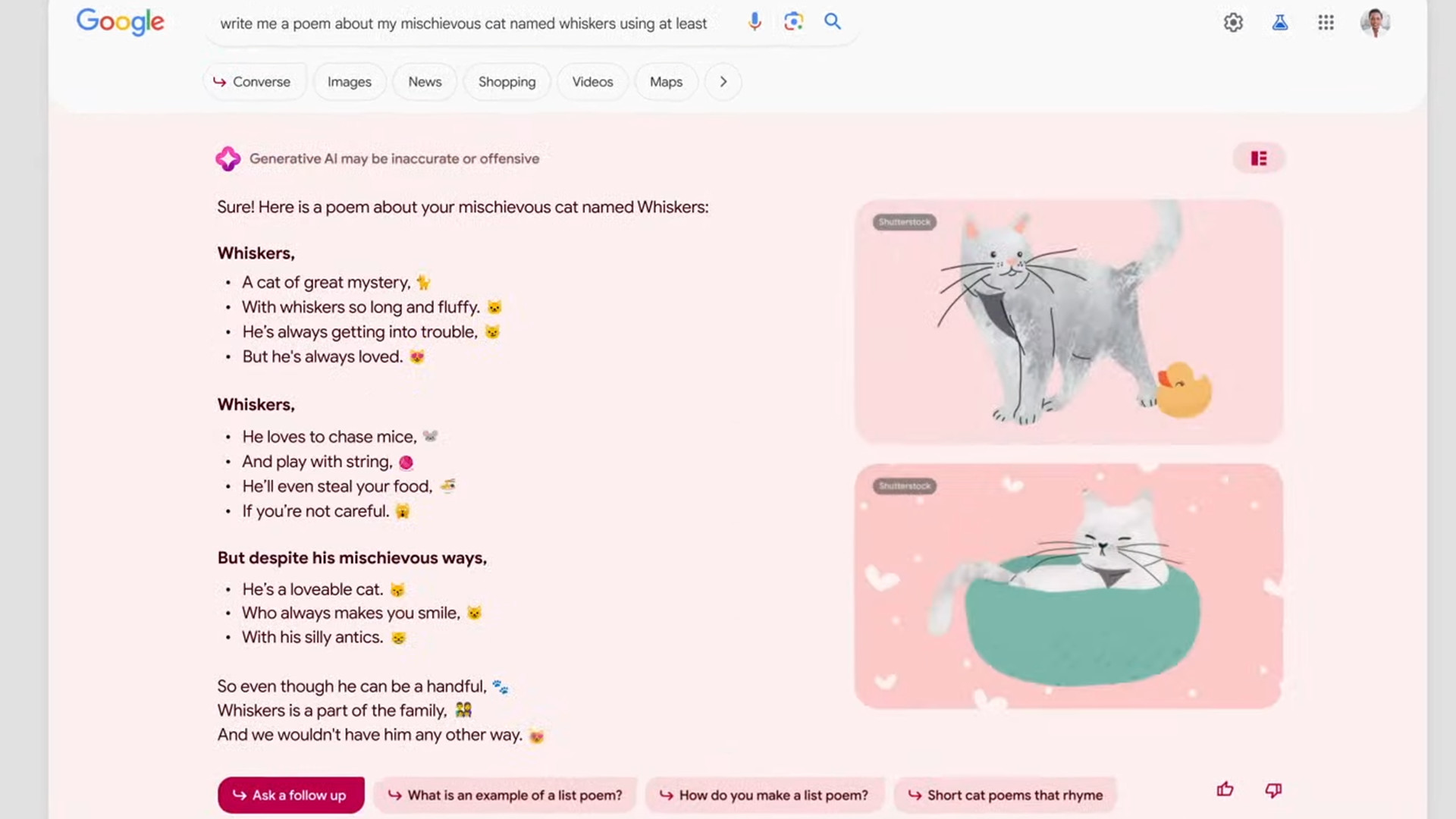
Like ChatGPT, you can ask Google to make some content for you. You ask it to come up with a name for a social group, a quiz on traffic hand signals in California, social media posts, or a kids' poem about cats.
5. Create a fitness plan

This was briefly glossed over in the presentation, but you will be able to ask Google to come up with a fitness plan for you to follow. It’ll provide weekly instructions on how you can achieve your goals alongside some advice on how to pace yourself. Videos will be provided in the search results for further information.
The SGE update for Google Search will launch sometime within the coming weeks. However, if you live in the United States, you can try out the AI starting today by heading over to Google Labs and joining the waitlist.
While we have you, be sure to check out the official reveal of the Google Pixel Fold.

Cesar Cadenas has been writing about the tech industry for several years now specializing in consumer electronics, entertainment devices, Windows, and the gaming industry. But he’s also passionate about smartphones, GPUs, and cybersecurity.